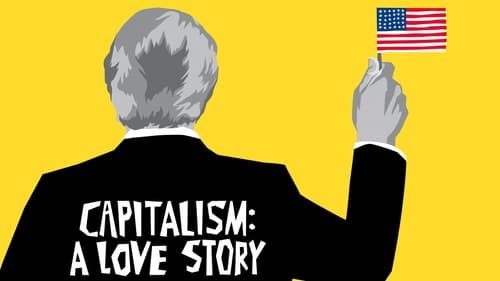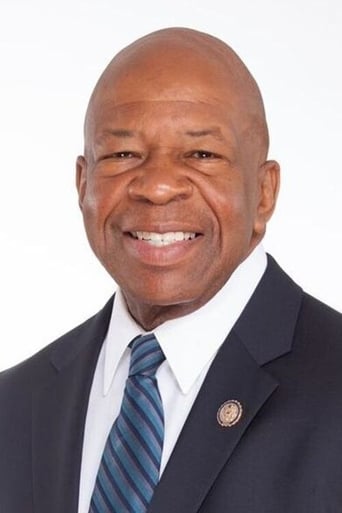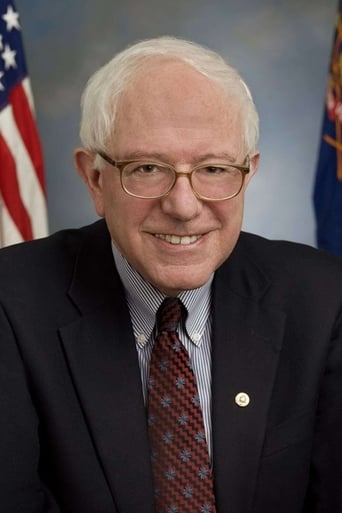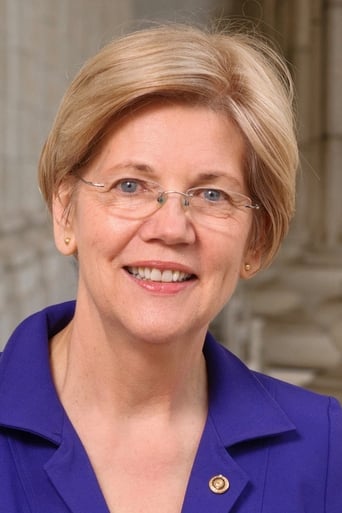LouHomey
From my favorite movies..
Catangro
After playing with our expectations, this turns out to be a very different sort of film.
Janae Milner
Easily the biggest piece of Right wing non sense propaganda I ever saw.
Keeley Coleman
The thing I enjoyed most about the film is the fact that it doesn't shy away from being a super-sized-cliche;
anumber
The utter irony and hypocrisy of a gluttonous multi-millionaire making a film lambasting Capitalism is stunning. (well, it would be if it wasn't Michael Moore making it.) If you like a "documentary" that is full of misinformation, grandstanding, and bloviation, you don't want to miss this! It wouldn't be a Moore film without it.
achmoye
In this movie, Michael Moore talks about several scandals, frauds but also modern-day legal briberies and immoral speculating and bets on life and death, like with life insurance. I will only write one review about Michael Moore's documentaries, because they are all the same, but in a good way. He made several documentaries about diverse problems of USA policies, and I like his vision of documentary. He doesn't try to be "real", he knows that it's cinema and you can't possibly be real. So he confronts you with USA problems, people crying, worst episodes of history, it's really manipulating your feelings, but not as much as propaganda, and we know he is on the right side, so we forgive him. There is no proper way to do documentaries. Michael Moore has its own opinion about it. He developed one method, his method. And you can see his consistency by watching his other movies. You might not like his methods, but he is coherent, his directing makes sense. Michael Moore tries to insert some humor in his work, and it provides an occasion to chill from the disturbing images.He also record himself seeking for the answers, which turns the documentary into an interesting and enjoyable adventure. He is not handsome though, he is kind of fat, but he doesn't care. And that is the whole thing about him : he doesn't care about being confronted with police, administrators, people trying to stop him. His work is useful and relevant because he does it like no one else.
gloverethan
This movie had nothing to say about capitalism. Instead it was a bunch of petty whining about Democrats vs. Republicans. The arguments are crap, there are no real sources for anything. This movie is a sales pitch for liberalism, pure and simple. Moore couldn't even bother to look up capitalism in the dictionary. He talked about government programs and called them private throughout the entire movie. This movie is god awful.I made 4 pages of notes on this movie before giving up. It never talks about the 2008 crisis being due to the government creating a no risk zone for banks (removing capitalism from their businesses). It didn't mention that cooperatives are capitalistic (and it even said that them making profit is good, while other companies making profits is bad). It's literally that childish. This movie is pure trash.
Spiked! spike-online.com
Michael Moore has a pretty good knack for making documentaries that capture the spirit of their times. Bowling for Columbine (2002), for instance, tapped into the feverish gun control debate in America; Fahrenheit 9/11 (2004) was released in the aftermath of the disastrous Iraq War of 2003; Sicko (2007) prefigured the recent US debate on state- run healthcare. In the midst of a serious economic crisis, Capitalism: A Love Story appears to be a timely investigation into bank bailouts, bankruptcies and the return of mass unemployment. So why do all of Moore's stunts, dashed-off analysis and gloomy conclusions in this film feel so tired and out of date?To begin with, Moore makes an apposite, albeit superficial, comparison between the dying days of Rome and contemporary America. He introduces some clips from what appears to be an old educational reel titled Life in Ancient Rome, which he then juxtaposes with more recent totems of American power, including the Metropolitan Opera House at New York's Lincoln Center draped in the Stars and Stripes. He makes the point that America's long-standing support for the free market has gone the same way as countless failed businesses: from unqualified confidence to directionless decadence. He proceeds to flesh out the scale of corruption in modern American society, using human-interest stories to elicit viewers' anger.Indeed, his well-worn directorial devices in this latest film reveal his limitations. As in his previous films, Moore inhabits the role of the burly, conscientious documentary-maker on a mission, who nevertheless lets people's stories speak for themselves. He intercuts these testimonials with a morass of kitschy stock footage and B-movie warnings that what we're about to see is 'truly one of the most unusual movies ever made' (except it isn't). The scenes where Moore battles it out with stern-faced corporate security guards and tries to access the high-seats of capitalism through silly stunts have a groaning over-familiarity to them.As in his previous films, Moore reveals an absolute aversion to the notion of personal responsibility. For example, he blames Ronald Reagan's policy of expanding the availability of credit for a lot of the current economic mess. The film offers the rather lame notion that no individual could possibly have been expected to understand the terms and conditions of the loans they signed their names to and that they were coerced into doing it. But in taking this approach Moore in fact reduces autonomous individuals to hapless victims. As a result, the burden of private debt is all the fault of rapacious financial institutions, riding roughshod over ignorant, ordinary Americans. He then borrows some divine authority from the Catholic Church by simply labelling capitalism as fundamentally 'evil'. Now that's telling 'em.This is where Capitalism: A Love Story really falls flat. Far from analysing the subprime meltdown, the credit crunch or the slump in productivity in the West, Moore avoids any coherent argument about how and why the crisis happened or why the consequences were so grave. Instead, he blurs and improvises one ill-conceived idea after another, becoming the Miles Davis of moralistic anti-capitalism.Moore is on firmer ground when he isn't strong-arming security guards or jabbering incoherent theories. The more effective scenes are the straightforward interviews with people who have lost out to unscrupulous employers. In one scene, he visits a widower whose wife was unknowingly insured by her company — a dubious practice called 'dead peasant insurance' — which earned the company quite a substantial amount of money when the woman died. Like many of the stories Moore explores, dead peasant insurance might not be massively revelatory, but it is effective in generating outrage and empathy amongst viewers.In many ways, it is precisely this kind of posturing that makes Moore's films such hits with liberals on both sides of the pond. In Moore's universe you can appear outraged, concerned and engaged with the world without having to fight for or justify a better alternative. Moore's conclusion, for all the leftist rhetoric in the film's title, suggests that the politics of TINA - There Is No Alternative - is very much alive and well in the US.Capitalism features strikingly retrograde ideas dressed up as faux radicalism. It's all very well to bemoan 'selfishness' and 'greed' in modern society, but when Moore conflates rational self-interest with anti-social behaviour and disregard for others, he is justifying clampdowns on basic freedoms and rights. By equating individual freedom only with degradation and amorality, he is going some way to legitimising the culture of unfreedom prevalent in both the US and the UK.Even more disgracefully, he borrows a quote from Roosevelt to suggest that people who are unemployed 'are the stuff of which dictatorships are made'. Raising the spectre of the masses voting for demagogues has long been the conceit of political elites. Moore is foolhardy for repeating it here, especially when the idea of limiting mass democracy looks set to define the new decade.After two decades of filmmaking, Moore's methods and arguments are essentially the same, but the impact of his films has grown ever weaker. Indeed, Capitalism repeats many of the same tricks and devices used in Moore's 1989 film Roger & Me, about the effect of General Motors downsizing in Flint, Michigan. But whereas that film appeared fresh and amusing 20 years ago, the same shtick – harassing security guards, staging publicity stunts outside corporate offices - is now wearisome, irritating and rather contrived.The main weakness of Capitalism, though, is that Moore doesn't quite know what to say. In his better films, like Bowling For Columbine and Sicko, his persona as affable, single-minded ordinary bloke was effective, but here the subject matter - capitalism - seems too big and complex for him.When one Wall Street employee asks Moore 'Why don't you stop making films?', it was one of the few sentiments in the film I could sympathise with.






